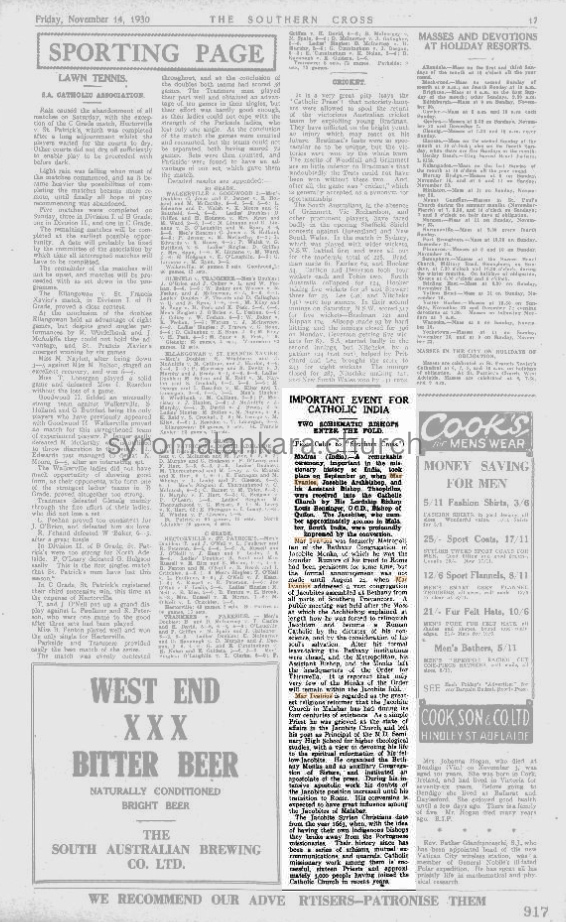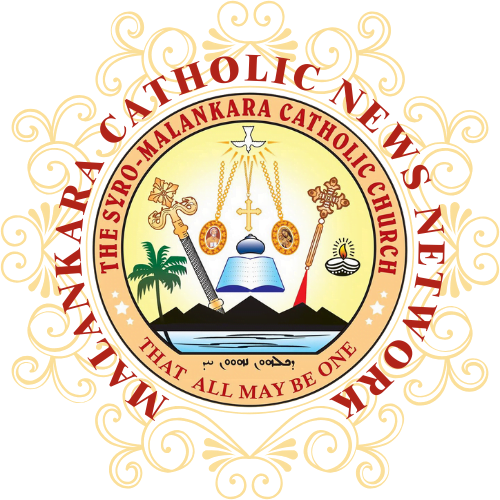(Fides Cable to “Southern Cross.”)
Madras (India) — A remarkable ceremony, important in the missionary history of India, took place on September 20, when Mar Ivanios, Jacobite Archbishop, and his Assistant Bishop, Theophilus, were received into the Catholic Church by His Lordship Bishop Louis Benzinger, O.C.D., Bishop of Quilon.
The Jacobites, who number approximately 400,000 in Malabar, South India, were profoundly impressed by the conversion.
Mar Ivanios was formerly Metropolitan of the Bethany Congregation of Jacobite Monks, of which he was the founder. Rumors of his trend to Rome had been persistent for some time, but the formal announcement was not made until August 24 when Mar Ivanios addressed a vast congregation of Jacobites assembled at Bethany from all parts of Southern Travancore.
A public meeting was held after the Mass at which the Archbishop explained at length how he was forced to relinquish Jacobism and become a Roman Catholic by the dictates of his conscience, and by the consideration of his soul’s salvation.
After his formal leave-taking, the Bethany institutions were closed, and the Metropolitan, his Assistant Bishop, and the Monks left the headquarters of the Order for Thiruvella. It is reported that only very few of the Monks of the Order will remain within the Jacobite fold.
Mar Ivanios is regarded as the greatest religious reformer that the Jacobite Church in Malabar has had during its four centuries of existence. As a simple Priest, he was grieved at the state of affairs in the Jacobite Church, and left his post as Principal of the M.D. Seminary High School for higher theological studies, with a view to devoting his life to the spiritual reformation of his fellow-Jacobites.
He organized the Bethany Monks and an auxiliary Congregation of Sisters, and instituted an apostolate of the press. During his intensive apostolic work, his doubts of the Jacobite position increased until his transition to Rome. His conversion is expected to have great influence among the Jacobites of Malabar.
The Jacobite Syrian Christians date from the year 1663 when, with the idea of having their own indigenous bishops, they broke away from the Portuguese missionaries. Their history since has been a series of schisms, mutual excommunications, and quarrels.
Catholic missionary work among them is successful, sixteen Priests and approximately 3,000 people having joined the Catholic Church in recent years.
Copyright: Southern Cross (Adelaide), 14 Nov 1930



